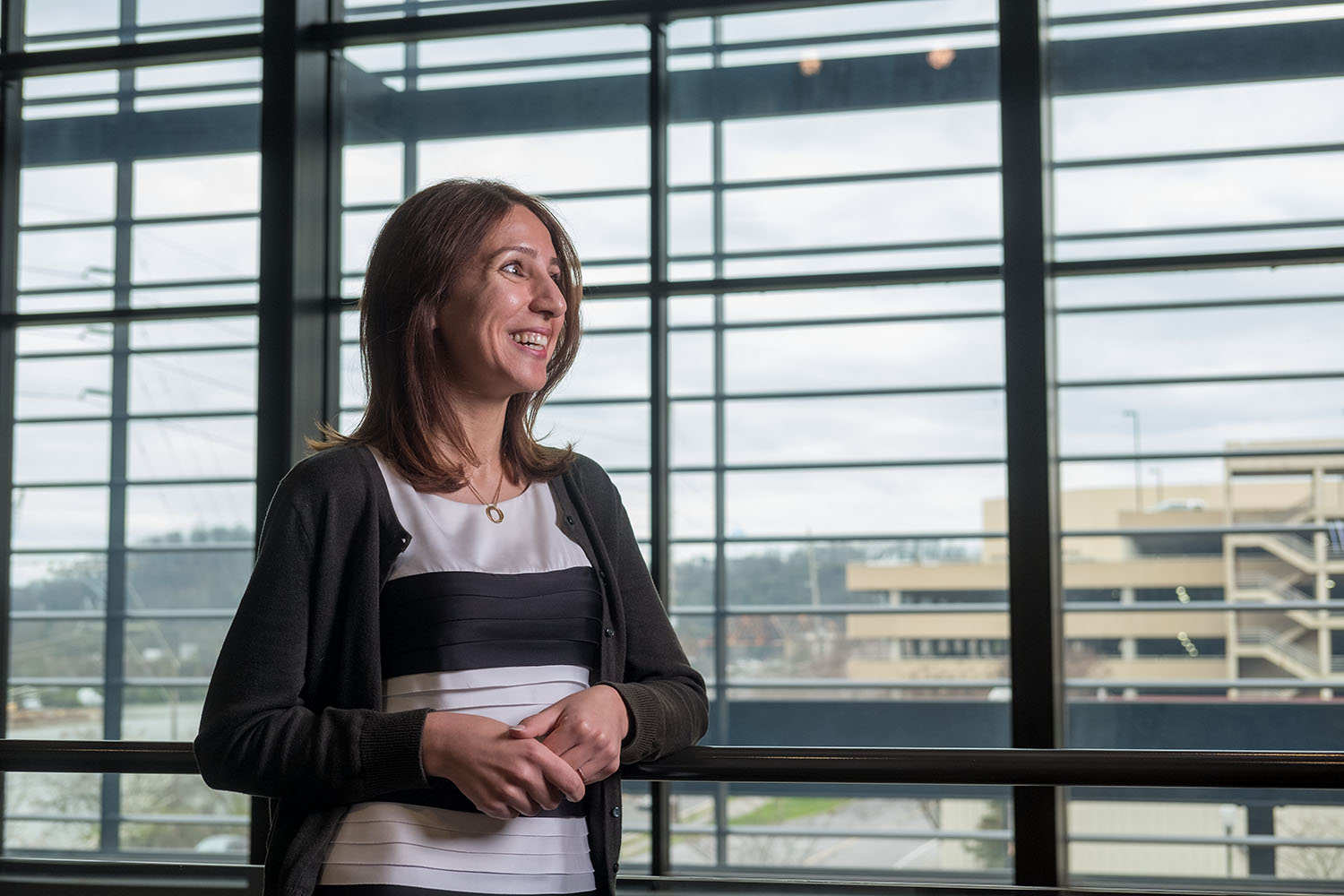Khojandi Awarded AI/ML Research Diversity Fellowship
The more Anahita Khojandi analyzed the data, the more questions began formulating in her mind.
Whose records was she analyzing? Did they represent the full spectrum of society, or just those who had access to better healthcare? Was she unintentionally overlooking underrepresented communities that may need help the most?
“I have the responsibility to understand those potential shortcomings in our models because they really should be made for all individuals,” said Khojandi, an associate professor in the Department of Industrial and Systems Engineering who has been working in the artificial intelligence/machine learning and analytics space for the last 15 years. “I started thinking about the bias and gaps that may have seeped into the data. That has been motivating me to find solutions.”
Khojandi’s ambition to create equitable healthcare models coincided with a fellowship opportunity that recently came to her attention.
The National Institute of Health’s Artificial Intelligence/Machine Learning Consortium to Advance Health Equity and Researcher Diversity (AIM-AHEAD) program seeks to increase the participation and engagement of researchers and communities currently underrepresented in AI/ML to utilize the power of AI/ML to achieve health equity through mutually beneficial partnerships.
Khojandi applied and was selected as a member of the AIM-AHEAD Fellowship in Leadership for Fall 2023 cohort. She receives a fellowship award of $50,000, access to all consortium cores, and targeted trainings and courses specific to AI/ML and health equity education.
“I was very surprised and excited when I received the news,” said Khojandi, who chairs the Diversity, Equity and Inclusion Committee of the Institute for Operations Research and Management Sciences. “This really resonates with me, because the focus is to not only support researchers who come from different backgrounds through this program, but also make sure they have the tools to address all of these gaps that exist in the way we run our models and the questions that we ask from the data.”
Through the course of the fellowship, Khojandi will be completing a team project with four other Fellows and an individual project. Her individual project is based on research she has already been doing regarding how and why patients with severe asthma, especially children, have different responses to inhaled corticosteroids. Her goal is to find equitable precision treatment plans to improve health outcomes.
“Because we are all slightly different in terms of our genome composition based on our ancestry, we each may respond to medications slightly differently,” she said. “So, we want to make sure that our models are equitable by focusing on different ancestries separately.”
Khojandi’s work with the Biorepository and Integrative Genomics (BIG) Initiative through the Tennessee Health Science Center (UTHSC) in Memphis has been extremely beneficial to her research. The initiative aims to collect genome data from 100,000 Tennessee residents.
“They anticipate almost 44 percent of the individuals whose data will be sequenced from underrepresented populations. That is huge,” Khojandi said. “Based on one estimate, only 1.1 percent of all genomic data collected is from African Americans. This initiative is trying to make sure that in Tennessee precision medicine is going to get advanced for all of us.”
Khojandi believes what is learned through the Tennessee data will also be generalizable to the entire United States and beyond.
Khojandi, who joined the Tickle College of Engineering in 2014, received her PhD in industrial engineering at the University of Pittsburgh. Once she entered the field, she noticed that many applications of her analytics toolkit were focused on minimizing cost and maximizing efficiency. Although she believes that is essential, Khojandi was very intrigued by helping quality of life improvements in the health and wellness sector.
“I can use my decision-making and analytics tools to save lives and help physician’s make better decisions,” Khojandi said. “Even though I am not trained as a clinician, I can still work with them, collaborate with them, learn from them, and help them make better decisions at the bedside using my analytic tools.”
She hopes her AIM-AHEAD fellowship experience will be another major step in the process. It’s an opportunity made possible by the time she’s spent in Tennessee and support she’s received from several mentors across the state.
“There is a lot of drive at UT and UTHSC to make sure we build these AI/ML compatibilities for research and lead the effort to improve human health and wellness,” she said. “They have created pipelines for us to be able to look at the data and push towards advancing health and science and health research. That has been instrumental in my thinking.”
Contact
Rhiannon Potkey (865-974-0683, rpotkey@utk.edu)
